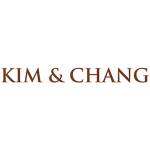According to the report ‘2021 EY Global IPO Trends’ a total of 547 companies worldwide went public in the third quarter of 2021, raising $106.3 billion (approximately KRW 126 trillion) – this is an increase of 11% from 2020.
South Korea has been no exception to this global boom in initial public offerings (IPO) deals, with Krafton and Kakao Bank spearheading the mega IPO deals in the Korean market. Krafton raised $3.8 billion in August while Kakao Bank raised $2.2 billion, ranking second and fourth, respectively, among global IPO deals that took place in the third quarter of 2021.
One of the notable trends of the Korean IPO market is the increase in the proportion of individual investors participating in IPOs. Until 2021, individual investors would generally apply for subscription of 100 to 200x of the number shares to be offered through an IPO. That ratio increased sharply during this year reaching 450x in the third quarter of 2021, marking the highest participation of individual investors in the past 10 years.
With the proportion of individual investors growing along with the booming IPO market, financial regulations are also tightening. For example, the Financial Supervisory Service (FSS) has been requesting amendments to securities registration statements at a substantially higher rate since last year. Also, the emphasis on environmental, social and governance (ESG) is becoming more pronounced in the South Korean IPO market.
The key characteristics of the South Korean IPO market and related regulatory trends are discussed below.
Increase of individual investors
There are several reasons a growing number of individual investors are showing interest in IPOs: First of all, many South Korean companies that went public have recently shown very high returns on their first day of listing, raising the expectations of individuals for investment in IPOs who had little experience in the stock market.
In addition, not only is there a greater number of individual investors who have newly entered the stock market since the Covid-19 pandemic, but the size of each investors' investment in the stock market has also increased significantly.
While an expanded investor base certainly has contributed to vitalising the stock market, unrealistic expectations on their return on investments have also brought adverse effects, such as inflating the initial offering price of the issuer’s shares well above its fair value and causing their share price to crash when investors who wish to realise their profit sell their shares at once.
As it happens, there are more and more cases where IPO share prices had plummeted after setting a high initial price on the first day of listing. As individual investors account for a significant portion not only in the subscription of publicly offered shares, but also in post-listing trades, the stock market has become more susceptible to the sentiment of individual investors.
As various problems arose due to the increasing number of individual investors in the IPO market, financial regulators announced measures to improve the IPO framework in November 2020. Such measures include increasing the number of shares offered to individual investors, and an ‘equal allocation’ of subscription shares for at least half of the shares offered to individual investors so that individual investors who may have difficulty in paying the subscription deposit may nonetheless have access to the IPO market compared to the conventional method of allocating shares in proportion to the number of shares each individual investor applies for subscription.
However, there are ongoing debates as to whether increasing individual investors’ access to IPOs is desirable, and in particular, there is a concern that greater participation of individual investors in the IPO market may lead to greater suffering in their investment because investing through an IPO is primarily to invest in the issuer’s potential growth, which may or may not be realised.
FSS review of IPO securities registration statements
As the number of individual investors newly participating in the IPO market increases, the financial authorities’ review process is also becoming more stringent in line with investor protection. In South Korea an IPO generally takes the following steps: (i) mandating lead managers; (ii) due diligence of the issuer; (iii) preliminary screening process for listing by the Korea Exchange (KRX); (iv) FSS’ review and approval of the issuer’s securities registration statement; (v) conducting marketing towards investors through roadshows or other means; (vi) bookbuilding and pricing process; and (vii) subscription of shares and payment.
|
|
“One of the notable trends of the Korean IPO market is the increase in the proportion of individual investors participating in IPOs.” |
|
|
As a securities registration statement is the basis for investors’ investment decision, the issuer could be held liable for misstatements therein if the securities registration statement or a prospectus contains any untrue statement of a material fact or omits to state a material fact necessary in order to make the statements therein not misleading. In addition, the FSS may also require an amendment if the securities registration statement contains any misstatement. Whenever the FSS requests an amendment, the issuer must file an amendment to the securities registration statement, which may delay the overall IPO timeline.
The FSS has been demanding amendments for a greater number of securities registration statements. As of July 2021, 9 out of 54 companies (16.7%) that submitted securities registration statements to the FSS in 2021 were subject to amendment, up by approximately 50% from 2020. This is quite remarkable given that among the 283 companies that were listed between 2017 and 2019, the FSS had never requested an amendment to their securities registration statements.
Meanwhile, three companies that filed an amendment to the securities registration statements in 2021 lowered their expected offering price range, which suggests that although the FSS's requests for amendment were made in the name of investor protection, there is some speculation that it was actually targeted to lower the offering price after some controversy regarding overvaluation.
While some criticise the financial authorities’ intervention in the IPO market, especially when there are procedures such as a bookbuilding process to help reasonably find the right offering price, others agree that the financial authorities must take stronger measures to protect investors given that a large number of individual investors are entering the market. Despite such ongoing debate, the financial authorities will likely continue to apply heighted scrutiny. Therefore, adequately responding to the regulators’ request is becoming more and more important in the context of an IPO, and the role of legal counsels in this regard will also continue to grow.
More stringent listing eligibility review from KRX
The KRX has the authority to conduct quantitative and qualitative review regarding the listing eligibility of applicants before listing and to approve the IPO. In November 2021, the KRX announced a stricter guideline on its listing eligibility review process to (i) set forth in more detail the qualitative review standards so that issuers would have greater clarity and visibility on the likely outcome of the KRX’s review and (ii) prevent any misconduct that may harm the investors.
According to the guideline, the KRX will monitor (i) whether excessive dividends were paid out immediately before the application for review was filed; (ii) whether the offering price was reasonably calculated in light of fair market value; (iii) whether the issuer merged with another non-listed company immediately prior to listing, and inflated the merger value and whether the application was filed shortly after the merger; and (iv) whether the issuer was acquired through leverage buyouts (LBO) and attempts to transfer the burden of repaying the acquisition financing to the issuer.
The above KRX guidelines aim to prevent the booming IPO market from overheating and to strengthen the protection of individual investors through stricter IPO reviews by the KRX as a gatekeeper. However, it is still unclear as to how the KRX will determine and the reasonableness of offering price calculations, and whether or not dividend payments were excessive. Therefore, companies that are currently considering an IPO should carefully analyse the impact of paying out dividends or acquiring other companies.
IPO and ESG
ESG has now become a global megatrend. Global asset management companies and large pension funds in South Korea have brought ESG into their main investment standards, and this has led to a growing interest in ESG also in the IPO market.
Foreign institutional investors are making more and more ESG-related inquiries at Investor Relations (IR) sessions of companies wishing to go public, such as asking the gender ratio of the company’s executives and employees and its current and future plans on social contribution. Some major South Korean institutional investors are differentiating their subscription levels according to a company’s ESG ratings, cutting down their subscription of shares if the issuer’s ESG ratings are low.
In a recent IR session, institutional investors showed a strong interest in the issuer’s ESG factors and were checking the ESG status of the issuer, reflecting their strengthened stance on ESG investment. In response, some companies that plan on going public are using ESG management as a strategy to attract greater investor interest. As such, the ESG focus in South Korean IPOs is expected to continue to grow.

Myoung Jae Chung
Senior attorney, Kim & Chang
T: +82 2 3703 1254
Myoung Jae Chung is a senior attorney at Kim & Chang. His practice focuses on corporate and finance matters, including M&A, securities and capital market transactions, derivatives and investment funds.
Myoung Jae has extensive experience in a wide range of cross-border transactions, including public and private sector M&A, joint ventures, corporate and acquisition financing, as well as public and private offerings of corporate securities and structured notes.

Teo Kim
Attorney, Kim & Chang
T: +82 2 3703 1804
Teo Kim is a senior attorney at Kim & Chang’s M&A Practice. He specialises in M&A, private equity investments, securities and capital market transactions and corporate governance.
Teo has represented a number of multinational corporations and private equity funds on both cross-border and domestic transactions and has extensive experience in M&A, joint venture, corporate restructuring transaction. He also has deep securities practice experience, having successfully handled a number of IPOs and other offerings of equity in capital markets.

Steve Song
Foreign attorney, Kim & Chang
T: +82 2 3703 1893
Steve Song is a foreign attorney in Kim & Chang’s banking and finance practices. His practice primarily focuses on advising financial institutions, borrowers and sponsors on cross-border financing transactions, including project financing, acquisition financing, ship financing, and general secured and unsecured lending. He has extensive experience in working on multi-sourced financing transactions involving ECAs, multilaterals and commercial banks.
Steve also has experience representing financial institutions regarding corporate compliance violations, internal investigations and Financial Supervisory Service (FSS) investigations on insider trading and market manipulation.
Prior to joining Kim & Chang, Steve worked at The Korea Development Bank on structuring and negotiating domestic and cross-border financing transactions.




